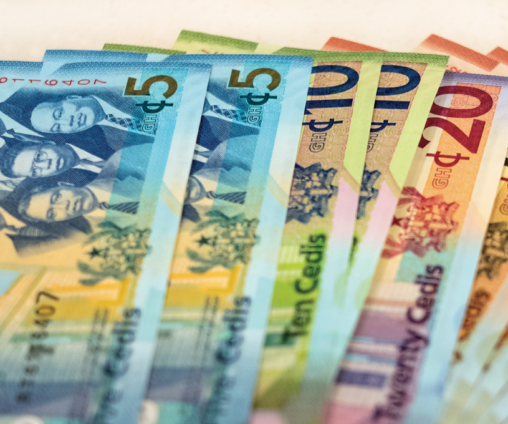Ghana’s cedi is the eight best performing currency on the African continent despite starting the year as the best performing currency in the first two months.
It is, however, second in the ECOWAS sub-region, behind the CFA franc, among currencies tracked by joy Business.
It has witnessed both quicker and slow runs so far this year, but December Presidential and Parliamentary elections are expected to pose further downside pressures on the local currency.
This is so because foreign investors will adopt an uncertain posture though Ghana’s elections have been successful since 1992.
The CFA franc, used by eight ECOWAS countries, is the best performing currency on the African continent with an appreciation of 5.69% against the US dollar .
It is followed by the Moroccan dirham (4.03%), Tunisian dinar (2.39%) and Egyptian pound (0.70%) which have all increased in value against the American currency year-to-date.
Additionally, the Tanzanian shilling (-0.42%), the Ugandan shilling (-0.14%) and the Malawian kwacha (-1.49%) have all also fared better than the cedi though have lost value to the dollar.
On the other hand, the cedi has done better than the Kenyan shilling (-6.44%), Nigerian naira (-19.24%) and the South African rand (-19.51%) on the continent.
The announcement by the Bank of Ghana to banks to hold onto dividend payments and other measures appears to have helped the cedi’s performance this year.
The partial lockdown of the economy also caused some reduction in trading activities on the foreign exchange market, thus keeping a certain level of stability.
Together with other currencies, the local currency also had profited from low demand pressures, largely because of the covid-19 pandemic due to reduction in imports.
However, recent uptick in corporate demand for forex coupled with disinvestments of some cedi denominated securities by foreign investors is a major concern going forward.
Currency and Economic Analyst at Databank, Courage Martey, tells Joy Business “the cedi has maintained a very stable performance since then [partial lockdown], and we haven’t seen any disruptions to the performance of the cedi on the market.
"Investors generally expected a lot of the numbers [macroeconomic indicators]that came out and so there wasn’t much shock that will be priced into the exchange rate as a result of the midyear budget.’
Furthermore, he said “the cedi has maintained quiet stable performance on the market. On the retail market it has actually gained about 0.1% since the mid-year budget review. On the interbank market it has rather lost 0.1%.
Forecast
Based on the current trend, the cedi is expected to end 2020 with a year-to-date depreciation of less than 5.0%. This would be however better than the 8.33% loss over the same period last year.
Latest Stories
-
Akufo-Addo leads nationwide commissioning of 80 educational projects
2 mins -
Ghana and Seychelles strengthen bilateral ties with focus on key sectors
33 mins -
National Elections Security Taskforce meets political party heads ahead of December elections
37 mins -
Samsung’s AI-powered innovations honored by Consumer Technology Association
56 mins -
Fugitive Zambian MP arrested in Zimbabwe – minister
1 hour -
Town council in Canada at standstill over refusal to take King’s oath
1 hour -
Trump picks Pam Bondi as attorney general after Matt Gaetz withdraws
2 hours -
Providing quality seeds to farmers is first step towards achieving food security in Ghana
2 hours -
Thousands of PayPal customers report brief outage
2 hours -
Gary Gensler to leave role as SEC chairman
2 hours -
Contraceptive pills recalled in South Africa after mix-up
2 hours -
Patient sues Algerian author over claims he used her in novel
2 hours -
Kenya’s president cancels major deals with Adani Group
3 hours -
COP29: Africa urged to invest in youth to lead fight against climate change
3 hours -
How Kenya’s evangelical president has fallen out with churches
3 hours

